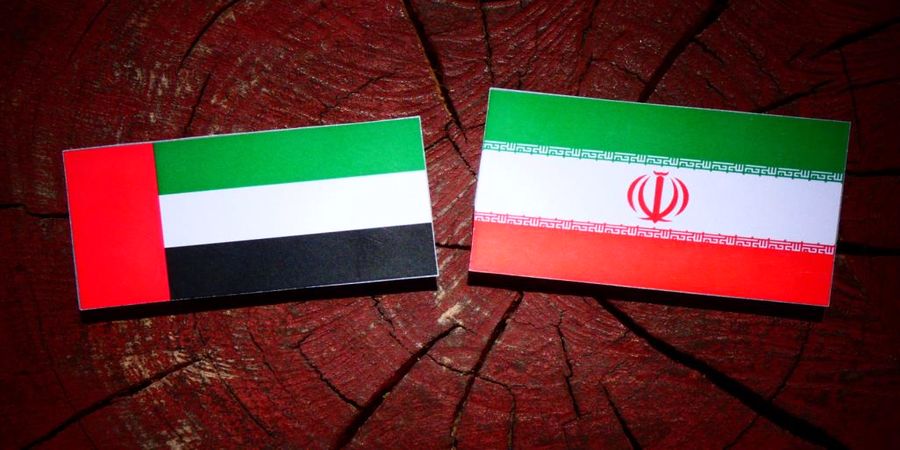Ghaasem Mohebali in an interview with the site of Strategic Council Online stated:” UAE is looking for a kind of relations in its foreign policy based on which it can establish relations with all countries in the Middle East in accordance with its interests and demands”.
Having stated that UAE as a military ally of the U.S. Mohabeali said:” Abu Dhabi has recently expanded its relations with Tel Aviv too and has entered into major treaties with the Zionist regime.
Having referred to the point that Iran is a neighbor to UAE, the expert said:” from one hand UAE intends to use the U.S. and Israeli regime to the benefit of its relations with Iran and proceed with its demands and policies versus Tehran or as they believe to remove Iran’s threat, and from the other hand it seeks to employ trade potentials with Iran in order to use Tehran as an scapegoat versus the U.S. and Israel and to deal with both sides”.
According to the expert, at the moment Abu Dhabi policy is to take the maximum benefit from the gaps that exist between Iran and the West. Because they feel Iran needs its relations with UAE. The U.S. and the Zionist regime also intend to exploit Abu Dhabi capacity and to establish a unified front against Iran in collaboration with South Persian Gulf countries.
Having replied to the question about the impediments before the advancement of the UAE policies, Mohebali said:” UAE raises from one hand a number of baseless claims on Abu Musa Island, and from the other hand following the Arab Spring, the regional policies of the country in Yemen, Egypt and Libya caused it to be in competition with some of the regional countries like Qatar, Turkey and to some extent Saudi Arabia”,
Having stated that one of the UAE concerns has always been the issue of Muslim Brotherhood in Arab world, he said:” In this connection, UAE along with Saudi Arabia have always been in competition with Turkey and Qatar in Libya and Egypt; Qatar and Turkey have extended their support to Muslim Brotherhood and UAE and Saudi Arabia were the supporters of military personnel in Egypt and Libya”.
According to the expert, despite being a neighbor to Iran, UAE has raised a number of claims against three islands particularly Abu Musa and intends to take concession from Iran through expanding her relations with the Zionist regime and the U.S. In the meantime, it needs the trade relations with Iran too”.
Mohebli underscored:” Iran is an important trade partners of UAE in the region and Abu Dhabi does not want to miss this opportunity.
The expert of the Middle East affairs mentioned that having a secure region is in line with the interests of all Persian Gulf countries, particularly UAE. He said:” these countries neither have the capability to enter into a clash alone nor it serves their interests, but in some cases like Iraqi invasion of Kuwait, these countries attempt to involve greater powers in the region aiming at removing threat”.
In connection with the looking of the Southern Persian Gulf littoral countries, particularly UAE versus Iran, Mohebali continued to explain:” While these countries avoid direct confrontation with Iran but they intend to use the U.S. and Israeli regime and to place them versus Iran”.
According to the expert, some of Arab countries set the stage for a dual game, i.e. when the region is heading towards a crisis they try to show a green light to Iran from one hand and to preserve their strategic relations with the U.S. and Israeli regime from the other hand.
The expert of the Middle East affairs commented on the background of UAE policies against Iran and said:” the country has practiced a policy in accordance with the regional situation during the 40 plus years after the Islamic Revolution of Iran based on the strategy to contain and control Iran and in the meantime played a winks and nods game with Tehran”.
He continued:” UAE set the relations in accordance with the situation, i.e. if the relations of Tehran with the U.S. and Europe improve, they will also try not to stay behind the trend and when the relations between Iran and greater powers like European countries or the U.S. suffer from a problems, they also try to preserve their relations with Iran but go along and accompany with the Western powers. This strategy adopted by the UAE has always remained unchanged during post-Islamic Revolution of Iran”.
Mohebali referred to some measures taken by Emiratis and said these movements are considered as giving false assurance to Iran and the example of which is the recent visit of Security Advisor of UAE to Iran.
The expert continued:” As Abu Dhabi had planned the visit of the prime minister of Israeli regime and concluding high level contracts and whereas Iran’s declared policy is to improve relations with Southern Persian Gulf littoral countries, they tried to show the gesture as if they are improving their relations with Tehran”.
He emphasized:” in fact, Abu Dhabi tried to moderate Tehran’s further reaction in case of expansion of UAE – Zionist regime relations and dragging the regime into the region that can be a reaction along with a threat”.










0 Comments